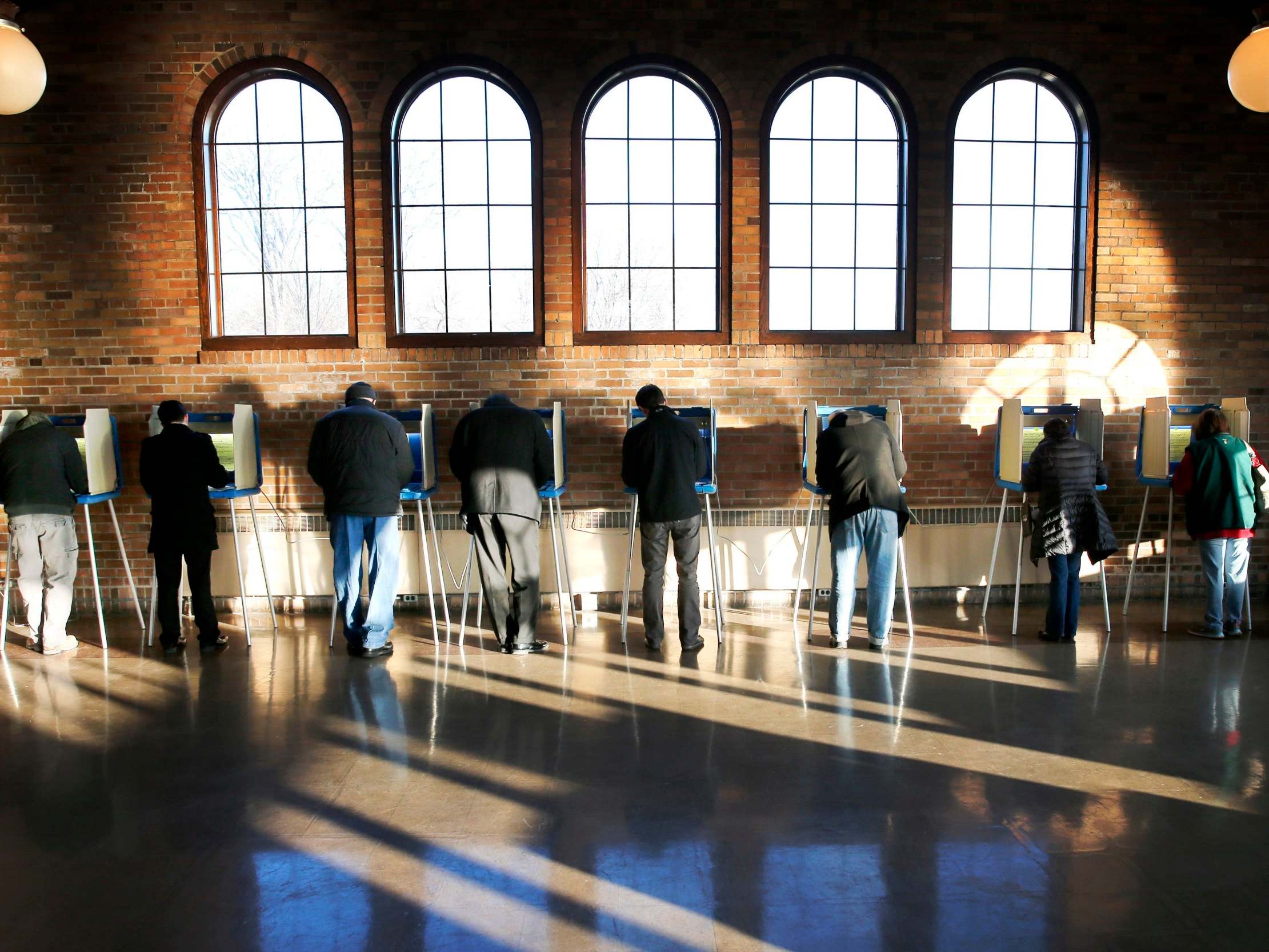Republicans to purge over 500,000 voters in two key 2020 states
Measures could impact the outcome of 2020 election, and raise concern that Democrats are more likely to be targeted

Your support helps us to tell the story
From reproductive rights to climate change to Big Tech, The Independent is on the ground when the story is developing. Whether it's investigating the financials of Elon Musk's pro-Trump PAC or producing our latest documentary, 'The A Word', which shines a light on the American women fighting for reproductive rights, we know how important it is to parse out the facts from the messaging.
At such a critical moment in US history, we need reporters on the ground. Your donation allows us to keep sending journalists to speak to both sides of the story.
The Independent is trusted by Americans across the entire political spectrum. And unlike many other quality news outlets, we choose not to lock Americans out of our reporting and analysis with paywalls. We believe quality journalism should be available to everyone, paid for by those who can afford it.
Your support makes all the difference.Republicans are set to purge more than 500,000 voters from the books in two potentially key 2020 states, with court victories in both Georgia and Wisconsin favouring right-wing groups.
The measures would see voter purges of nearly 234,000 voters in Wisconsin, and around 300,000 in Georgia. If the efforts are successful, the purges would amount to around 7 per cent and 4 per cent of those states’ electorates, respectively.
In Wisconsin, 55 per cent of the voting roll purge letters that have been sent went to districts Hillary Clinton won in 2016 over Donald Trump, including college towns and the state’s two largest cities (Mr Trump won the state by just over 22,000 votes). The current governor of the state, a Democrat, won his election by less than 30,000 votes.
“This move pushed by Republicans to remove 200,000 Wisconsinites from the voter rolls is just another attempt at overriding the will of the people and stifling the democratic process,” Tony Evers, the governor, wrote in response to the judge ruling in favour of the purge.
In Georgia, meanwhile, the most recent election was decided by just under 55,000 votes. The state has voted for Republicans for decades, but has slowly been moving into swing state status, thanks in part to demographic changes and Mr Trump’s negative approval rating in the state — meaning, a voter purge of the magnitude being undertaken could play a decisive role in who wins the state in 2020.
Shortly after courts in Georgia and Wisconsin ruled to allow the purges, Democrats and voting rights groups cried foul, noting that the purges could leave dramatically reduce the voting population in the states — and, in many cases, it appears that the changes would benefit Republicans.
“Georgians should not lose their right to vote simply because they have not expressed that right in recent elections, and Georgia’s practice of removing voters who have declined to participate in recent elections violates the United States Constitution,” said Lauren Groh-Wargo, the CEO of the Georgia group Fair Fight Action.
The federal judge ruling in Atlanta on Monday came just months after Georgia secretary of State Brad Raffensperger released a list of 313,000 voters who were at risk of losing their registration. Fair Fight Action has argued that the purge, which was allowed to proceed as of Monday night, could target 120,000 people who have not voted in the past seven years, even though a new state law allows inactivity for up to nine years.
“Moreover, the Secretary of State, who advocated changes to Georgia’s election law earlier this year and applauded passage of House Bill 316, is now attempting to violate that very law, which mandates a longer timetable before voters can be removed under ‘use it or lose it.’ As our groundbreaking lawsuit against the Secretary of State moves forward, we have asked the court to step in and stop this illegal purge,” Ms Groh-Wargo continued.
Bryan Tyson, who represents the the state of Georgia in the ongoing litigation, had told the judge that voter maintenance is a pressing issue because it cannot be done within 90 days of an election. And, if it is not done before later this month — marking 90 days until the March 24 primary — voter maintenance cannot be done again until 2021.
Mr Tyson also assured the judge that the purges could be reversed within 24 to 48 hours if a judge decides later that the measure is unconstitutional.
Join our commenting forum
Join thought-provoking conversations, follow other Independent readers and see their replies
Comments